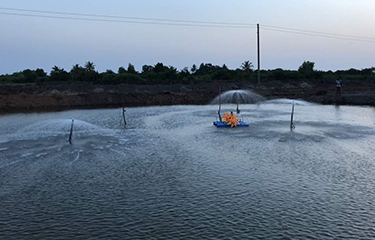The ban on tilapia imports in Ghana will be sustained until the West African country achieves adequate production levels to meet domestic demand, according to Ghana Fisheries and Aquaculture Minister Mavis Hawa Koomson.
The minister, speaking in early February during the official launch of the Volta Catch depot, operated by Tropo Farms in the town of Kasoa, said her ministry will work closely with the country’s law-enforcement agencies to enforce the ban and ensure there is no illegal importation of tilapia, Business Ghana reported.
The ban, which the country implemented in 2014 but suspended several times since, is part of Ghana’s effort to fight the entrance of cheap tilapia into the local market, including products from China, and ward off the risk of tilapia lake virus, which emerged as a threat to the global tilapia sector in 2017 and 2018.
Ghana’s average annual tilapia production has been approximately 70,000 metric tons since 2013. Tropo Farms, which produces Volta Catch Tilapia, is currently one of the leading commercial tilapia producers in Ghana. The opening of the new depot is expected to increase the company’s ability to expand its distribution throughout Ghana, where fish constitutes 50 to 80 percent of consumed animal protein among the West African nation's populace.
That high consumption has led to demand for tilapia outstripping production, but Ghana is striving to scale up its tilapia production levels – especially in Lake Volta, where recent research found tilapia output could be increased by 25 percent.
“[Ghana] has the potential for aquaculture development due to optimal developmental conditions, such as good soil condition and temperature, the availability of water bodies and high demand for fish locally," Koomson said.
In addition to the ban, Ghana is also implementing measures to support domestic tilapia production. The country launched the “Accelerating aquaculture development in Ghana through sustainable Nile tilapia seed production and dissemination” effort in early 2019. The three-year program focuses on addressing issues in the tilapia seed and extension system, something Ghana hopes will enhance output and profitability of tilapia cage- and pond-farming – the primary tilapia-farming systems used in Lake Volta.
Photo courtesy of Global Aquaculture Alliance







